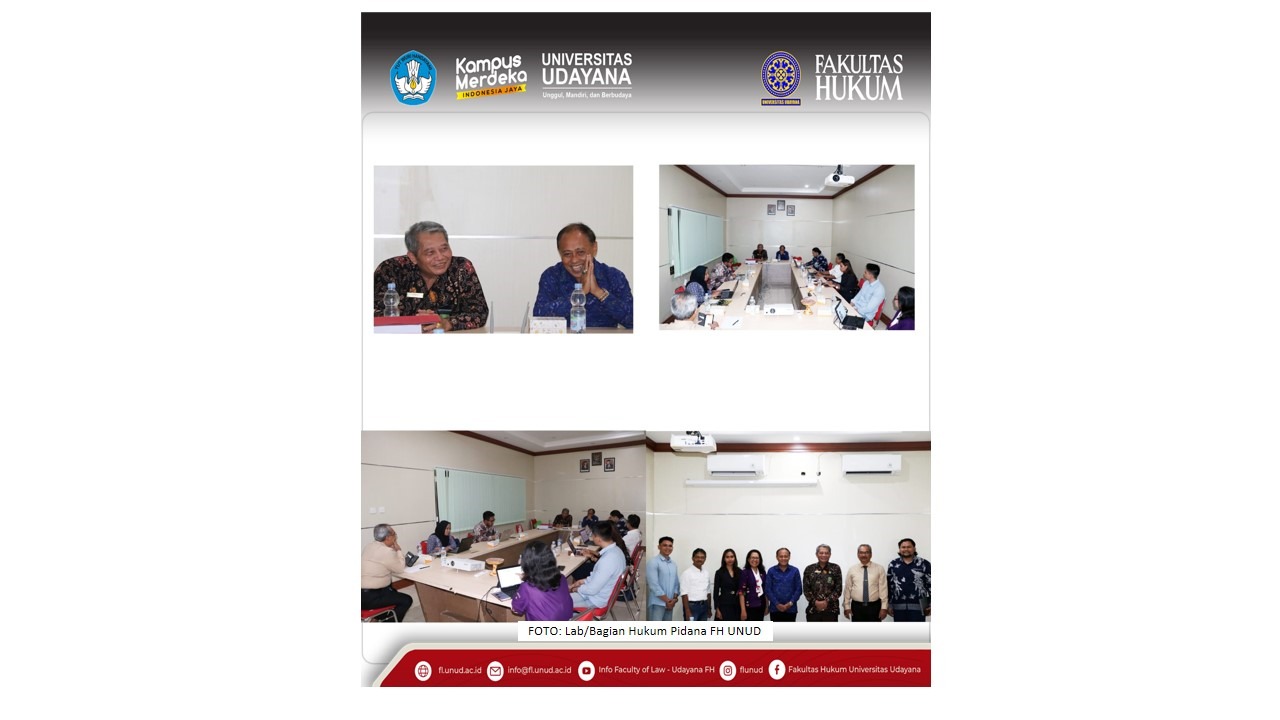FGD of the Supreme Court of Indonesia and FH UNUD: Guidelines for Criminalization of Electronic Transaction Information Cases
Author: Sagung Putri ME Purwani | Editor: UPIKS Team FH UNUD
Denpasar, FLUNUD.ac.id - Focus Group Discussion (FGD) was organized by the Research and Development and Judicial Unit of the Supreme Court (MA) of the Republic of Indonesia (RI) with FH UNUD on Tuesday (15/08/2023) at R. LII D8 FH UNUD Denpasar Campus. This FGD discussed the topic "Guidelines for Sentencing Certain Articles in the Electronic Information and Transaction Law (ITE).
This activity was opened directly by the Dean of FH UNUD (Prof. Dr. Putu Gede Arya Sumerta Yasa, S.H., M.Hum) and presented several speakers, namely: Dr. Lilik Mulyadi, S.H., M.H. (Vice Chairman of the West Nusa Tenggara High Court), Dr. Budi Suhariyanto, S.H., M.H. (Researcher of the National Research and Innovation Agency), Dr. IB Surya Dharma Jaya, S.H., M.H. (Head of the Criminal Law Section of FH UNUD), Dr. Gede Made Swardhana, S.H., M.H. (Head of UNUD Legal Affairs Office), attended by several lecturers representing the Criminal Law Lab/Section and moderated by Dr. Sagung Putri ME Purwani, S.H., M.H.
The purpose of this FGD is a series of activities to prepare an Urgency Script on Sentencing Guidelines in Electronic Information and Transaction (ITE) Criminal Cases, which was held in 27 provinces. This FGD topic is very important considering the development of information and communication technology accompanied by the development of crimes using information and communication technology (cyber-crime). Crimes that were originally committed in the real world can also be committed in cyberspace with a large number of victims and scope of losses as well as a more sophisticated modus operandi.
To tackle cyber-crime, the government has issued and enforced Law Number 11 of 2008 Jo. Law Number 19 of 2016 on Electronic Information and Transactions (ITE Law). In practice, for types of ITE criminal offenses that have equivalent arrangements with the Criminal Code or other laws lead to different interpretations among law enforcers and judges.
On this occasion also discussed the continuation of cooperation between FH UNUD with MA RI and the National Innovation Research Agency (BRIN). Cooperation between these parties will certainly support the performance of MA RI and BRIN as well as strengthening the Tridharma of Higher Education activities at UNUD (in general) and FH UNUD (in particular).





